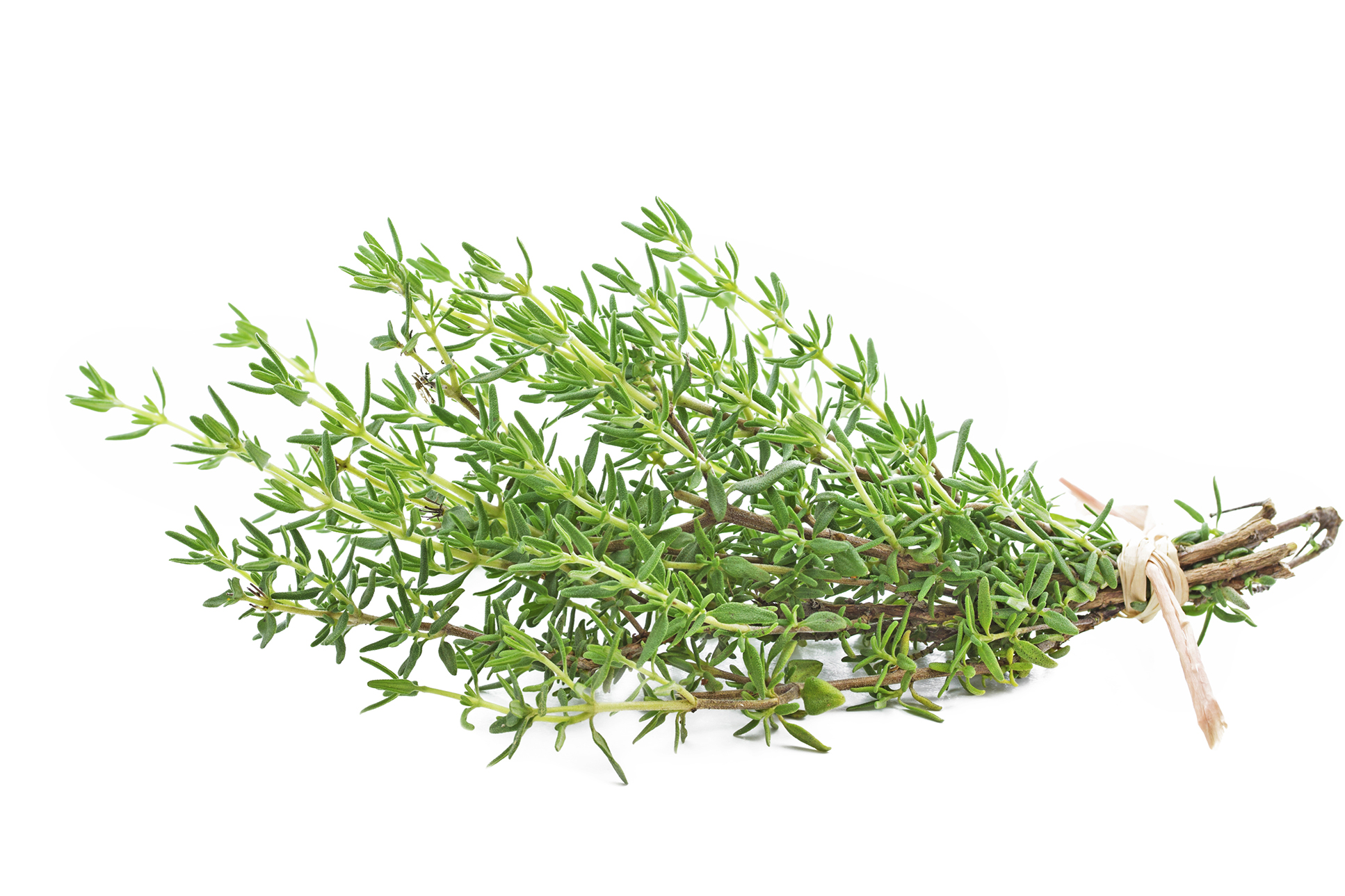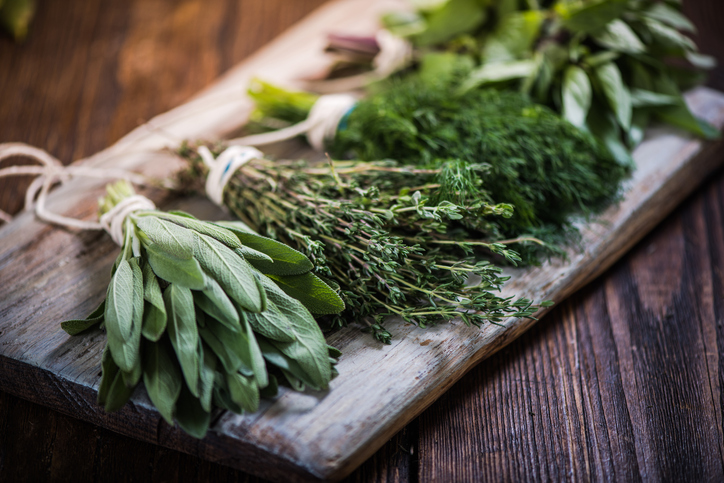Herbs, Thyme

Availability:
| J | F | M | A | M | J | J | A | S | O | N | D |
Description:
Thyme (Thymus vulgaris L.) is related to oregano and mint and is an herb that can be used fresh or cooked. When used fresh, the small leaves are usually stripped from the thin woody stems, and no further chopping is usually needed. The raw herb can be added to dressings or marinades and adds a bright herbaceous pop of flavor. To save food cost, the stems can be used to flavor vinegars and oils. Thyme grows ornamentally in home gardens as it is grows low to the ground (creeping) and can be lightly tread upon if grown between paving stones.
Like bay leaves, thyme is not overly aromatic, instead, it does well cooked in liquids, which unlocks the hidden flavor. Whole fresh thyme can be scattered in the pan when roasting poultry to flavor the drippings, or added to soups, stews, and cooking liquids, with the thin woody stems removed after cooking has released the leaves. Thyme is an essential herb in stocks and broth.
It is referred to as a “poultry herb” and used ubiquitously during the holidays along with rosemary and sage.
Recommended Storage
The recommended optimum storage temperature is 32° – 40°F. Storing fresh bay leaves is different than storing dried, which are shelf-stable. With fresh, you want to keep them covered, and they are susceptible to curling and wilting when allowed to dehydrate. With the exception of oregano and basil, we recommend you store all herbs in the coldest part of your cooler. The temperature fluctuates from the front to the back of the cooler due to the location of the cooling unit and frequency of the door being opened. Download our PDF for more cooler storage hints.
Check out what’s going on this week. For our latest market update, please see The FreshPress.
You can also click here to be notified when we post fresh new videos.


